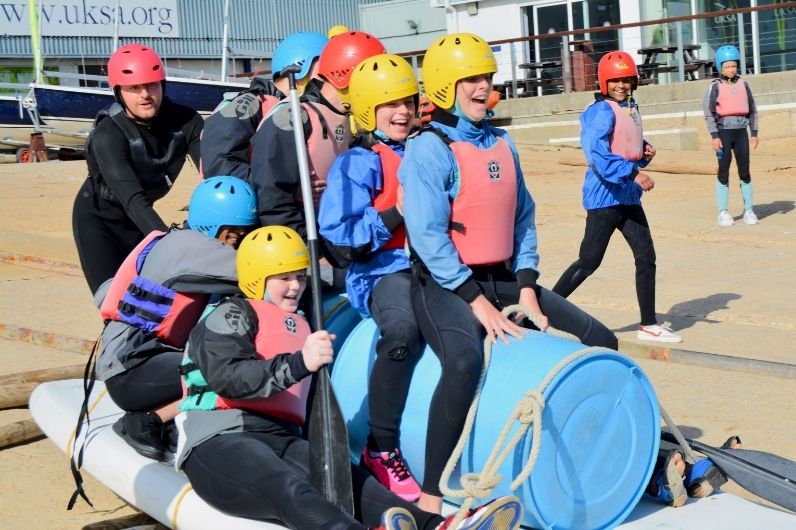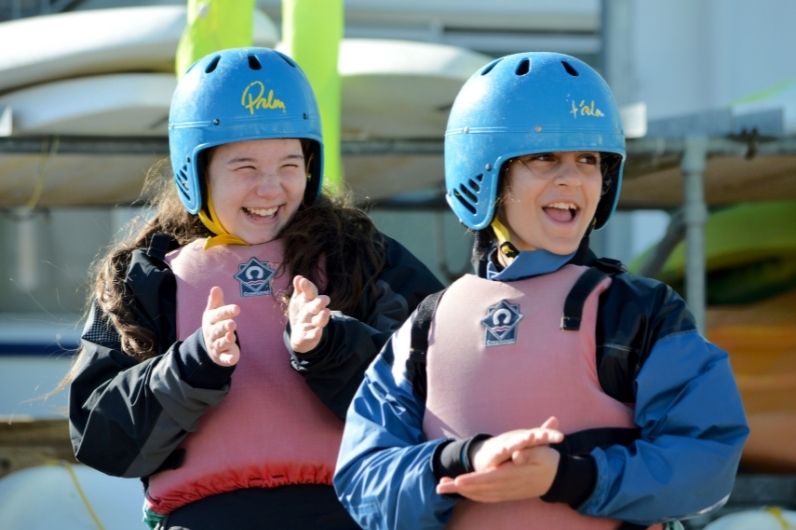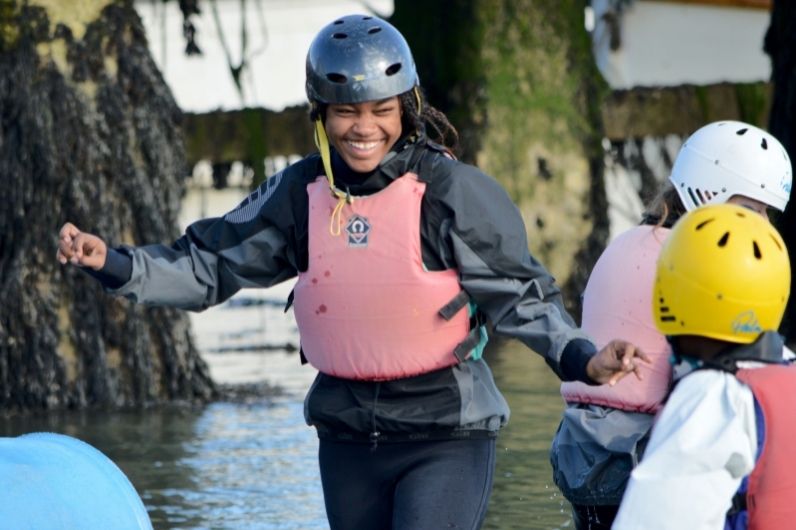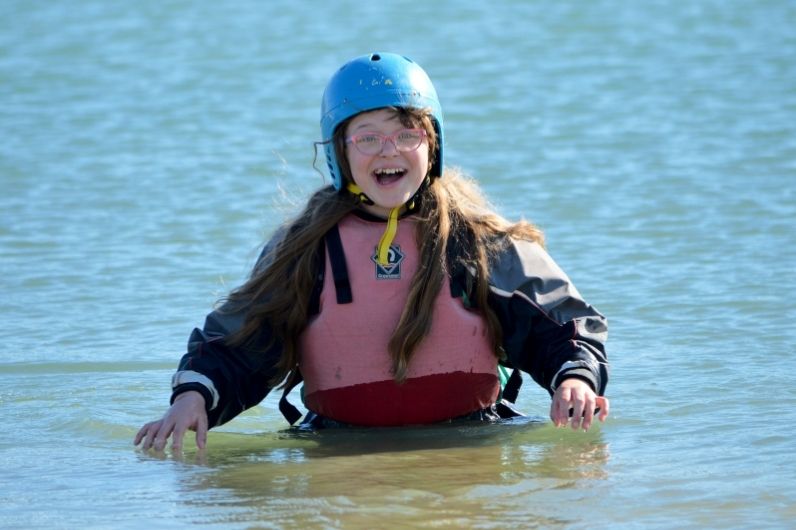
Tile Cross Academy
UKSA welcomed the first students from Birmingham-based Tile Cross Academy to undertake its pioneering Sea.Change Foundation programme.





The inspirational five-day residential programme is designed to give youngsters from ages 14-17 the opportunity to experience a wide range of water-based activities alongside classroom-based sessions, where they learn more about career options in the maritime sector. Participation in the programme was also a contributing factor in the Tile Academy becoming a finalist in the UK Social Mobility Awards 2021.
Pupils in Year 9 and above visited in the summer holidays across two weeks to take part in the programme, which was funded by luxury superyacht broker, Edmiston which, in conjunction with UKSA, launched the Edmiston Foundation in October 2020 to address diversity within the superyacht industry. This was set up to specifically provide young people, especially those in the most underrepresented and disadvantaged groups, the opportunity to forge a career within the maritime sector.
Former geography teacher and now head of social mobility at the Academy Neil McIntosh said:
“We’ve been doing trips for many years, but this was the first time that not only the children could really try watersports but also be inspired by the prospect of a career in maritime. The Sea.Change Foundation programme is unique in its offering of that careers element and many children came back enthused to be superyacht skippers or onboard chefs.”
The postcode of the Birmingham-based Academy places the school in the top three percent for deprivation in England and of the cohort of students that attended the course, over 80 percent live in postcodes in the top 10 percent for deprivation. The ward the school is in, is one of the 150 ‘Left Behind’ areas identified by the Oxford Consultants for Social Inclusion and the attainment levels for children in this area are lower than average and the gap is widening.
The programmes on offer at UKSA offer a positive and enriching experience for young people, not only as positive education and employment outcomes, but also offering the possibility for developing a wide set of skills beyond qualifications obtained from school.
Neil continued:
“Residential trips are always such a wonderful experience for both teachers and children. All the children are at different stages of their personal development so there will be some things some children find a real challenge and others don’t at all. For example, on the first day the children do a water confidence task to get used to wearing wetsuits and being in the water. I have some children who would happily leap in the water from a height, others will need to be coaxed in and some won’t do it at all. For more timid children, they really go on more of a journey than others and their development of resilience and hardiness is great to see as the trip progresses.”
“You’ve then got the social aspect of being away from home and managing relationships when you’re tired and in a different environment like the dorms. But seeing the children doing activities that are outside their comfort zone and seeing how supportive they are to others who are less confident, helping them to be part of a group and not leaving them out is really wonderful.”
On day one, the students spent the morning having a water confidence session followed by an introduction to powerboating and then team games in the evening. Day two gave them the opportunity to try kayaking and stand-up paddle boarding followed by maritime train and a careers session in the afternoon and sea survival in UKSA’s swimming pool in the evening. Day three was a keelboat day trip followed by an evening session on looking after our oceans. Day four was a dinghy day trip with a beach clean session in the evening with the final day a chance to have a yachting day trip.
“The highlight for me is seeing the children have a great time, laughing, screaming and shouting,” Neil said. “The shared excitement of doing things they’ve never done before is just fantastic. A stand-out moment for me was when we left Gunwharf Quays in Portsmouth to travel to the Island. The children imagined we would be getting a ferry, but we had arranged a small boat just for our group.
So, their experience going across the Solent surrounded by container ships and feeling the knock-on effect of the waves was filled with lots of noise and first experience excitement. The children were also shocked when I explained the Isle of Wight was in front of us. They had imagined something tiny without the possibility of shops, so seeing them make these discoveries was brilliant.”
Ben Willows, CEO at UKSA said:
“We were delighted to welcome the students from Tile Cross Academy as our first school to complete the programme. So many children and young people were already missing out on life-changing opportunities because schools, local authorities and parents simply couldn’t afford to pay for them, and the pandemic has only exacerbated this situation. Now, more than ever, programmes like the Sea.Change Foundation, which help to prepare young people for the workplace, are vital.”
Back in the classroom
Neil concludes that ‘with the trip being in the summer holiday it was more challenging to bring the experience straight back into the classroom, but I would say the biggest outcome was the children getting to know more about career pathways and how to get there. They have learned what they need to do at school to achieve their ambitions. Children don’t think too far ahead so they’re in a place of thinking ‘if I want to go and do this course, then I need to do XYZ. The course is also really helping with some of the children’s applications for independent sixth form funded options.
The children already tick the box for deprivation and disadvantage but being able to cite an experience like the Sea.Change Foundation programme too, really helps with their applications and the type of person they are. We’ve had two students start with Solihull Day School this September who did the Sea.Change programme and these are schools not only have the most amazing facilities but are also great at getting students into Oxbridge.’